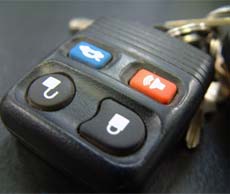189 comments Add a comment
I bought a Ford Focus 1.8TDCi brand new in April 2003 it has now done 22,000 miles with a full Ford service history. However, on the 14th of May 2007 the car began to have quite pronounced problems starting from cold.
The RAC took my car to a Ford Dealer I didn't get it back until 19 June 2007 (yes it took them just over a month to get it to start and then they had to 'test' it, so they had it almost 5 weeks in total!).
The total bill for the work came to 1919.22 during which they fitted a new battery, PCM module, fuel injection pump, crankshaft sensor etc. You could have knocked me down with a feather at this point.
Starting problems, dealer blames Ford diagnostics
When I queried the bill they said Ford told us to fit these parts due to readings off the diagnostics on the fault code reader. On the 27th of June and only a week after I got it back, I had exactly the same starting problems, i.e. after a short run from cold, switched off engine which then just refused to start again.
I feel that I have been ripped off and the Dealer blames Ford diagnostics, meanwhile Ford says that it is down to the dealer. Is this just a big game to Ford and am I just caught in the middle?
Can anyone tell me what to do here and does anyone know exactly what causes starting problems on the Ford Focus? I'm at a loss with this because it would seem that FORD themselves and their experts do not have a clue, so any ideas would be greatly appreciated.
By: GK
Leave a comment
Garage owner and technician for 40 years
Rough guess, it's screwed.
Lack of fuel can be caused by a wide range of faults, the most common being a blocked fuel filter, air in the fuel system, poor pump pressure and faulty injectors. A clean looking fuel filter may not appear to be blocked, but if you haven't replaced it yourself before, put a new one in to be certain. You'd be amazed at how many garages don't change these filters at a major service. Make sure the filter seals are renewed at the same time. Air leaks can be hard to track down, but you should be able to tell if you have one because, due to syphoning, there will be little or no fuel forward of the low pressure pump when you first try to start the car, also there may be bubbles present in the fuel line when the car initially starts. They may persist while the car is ticking over if the leak is particularly bad. Almost any part of the fuel system can spring a leak, so tracking it down takes time and patience. Start at the fuel tank and check every seal and pipe joint all the way forward to the injectors. Odds are somewhere along the line you will come across a badly seated O-Ring or loose pipe nut. Unless the leak is really bad you won't see any diesel coming out, it's a fairly viscous liquid and can't always pass through pathways air can travel through easily. If there is no obvious leak, you may need to have the system pressure tested by a diesel specialist. Have the pump efficiency checked at the same time. Don't go to a main dealer, they are worse than useless at diagnostics, plus a specialist will have more experience of other issues that may have effect your particular cars fuel system. If there are no leaks and your pump's fine, then you may be looking an injector problem.
Unliike petrol injectors, diesel injectors work at very high pressures, especially in common rail systems, this means they are more complex and more expensive to manufacture. It also means they are more prone to failure. Most failures are caused by blockages or wear and result in an injector delivering fuel to the cylinder poorly or not at all. Without the right equipment you cannot diagnose injector problems, other than complete injector failure. This would be apparent, because white smoke (not steam) would be billowing out of the exhaust, accompanied by a strong diesel odour, and/or the engine would be very rough. If you suspect the injectors there are a large number of specialist firms that can test them and diagnose any faults, they may even be able to refurbish them for much less than the cost of a new replacement.
At engine start-up glow plugs preheat the air and fuel mixture in the combustion chamber (cylinder) before it is compressed by the piston. This aids the ignition process, after which the glow plugs should not be required except in unusually cold conditions. Faulty glow plugs are not uncommon, but are not easy to diagnose without testing them and their relays electrically. If they are easily accessible, you could remove them and test them with a car battery to see if the tips heat up correctly (they should glow white hot). A faulty plug may not reach sufficient temperature or may heat up at the wrong point on the plug, making them useless. WARNING: Severe burns can result from touching a recently active glow plug. Glow plugs are not expensive, so replacing them yourself could be a cost effective solution to your problem.
Finally, good cylinder compression is a vital component of a diesel engine, without it combustion leaks will occur and this will effect engine starting quite severely, particularly when the engine is hot. An engine may not appear to run roughly even with lowered compression, but it will be less fuel efficient and will likely burn engine oil (blue-black exhaust smoke is the most common evidence). Due to the very high pressures involved, compression testing equipment for diesel engines tends to be quite expensive, so it may be cheaper and easier to seek the help of specialist. A quick, and not very accurate, compression test can be achieved by squirting a small amount (teaspoon) of engine oil into the cylinders via the glow plug ports when the engine is hot, then replace the glow plugs and start the engine. If the engine starts easily there is a good chance you have a compression problem, if not start looking elsewhere. Poor compression can only be remedied by an engine rebuild or replacement.
One last possibility is a blown head gasket. With high compression engines even a tiny breach in the gasket can result in huge losses of pressure in the cylinder and poor starting could be a symptom.
Hope some of this helps.







ben